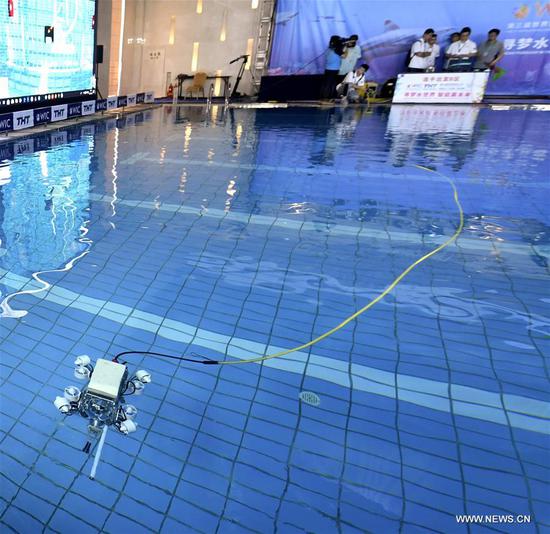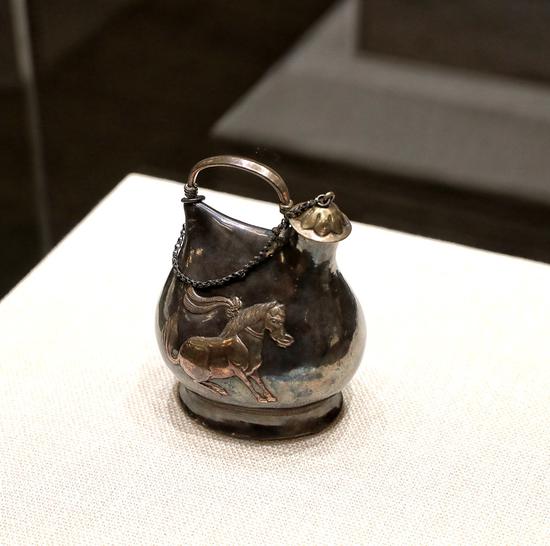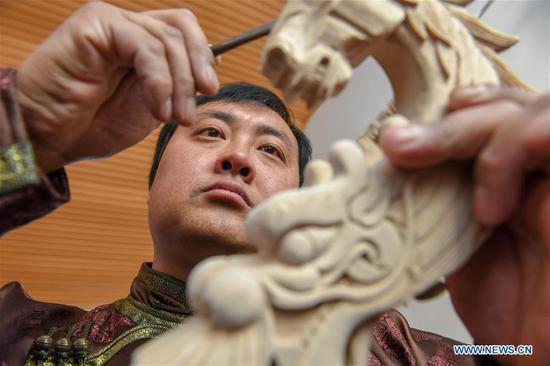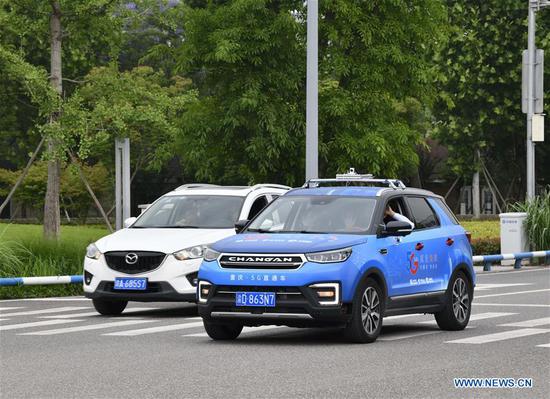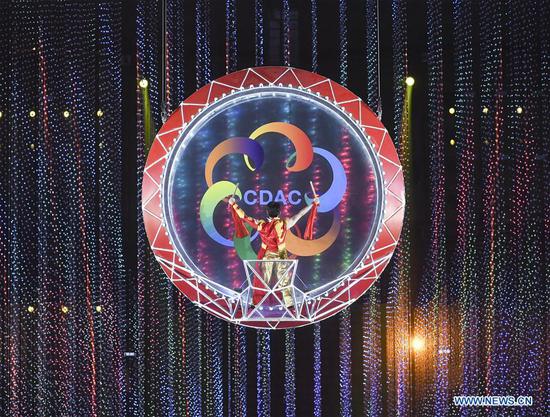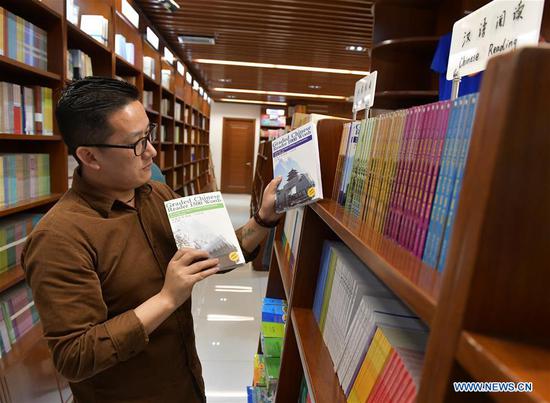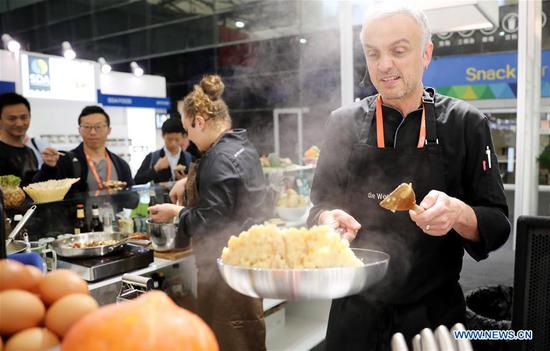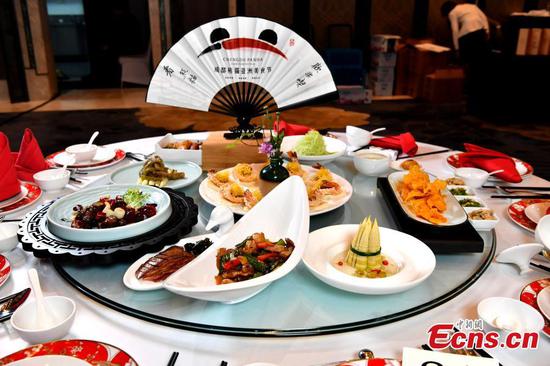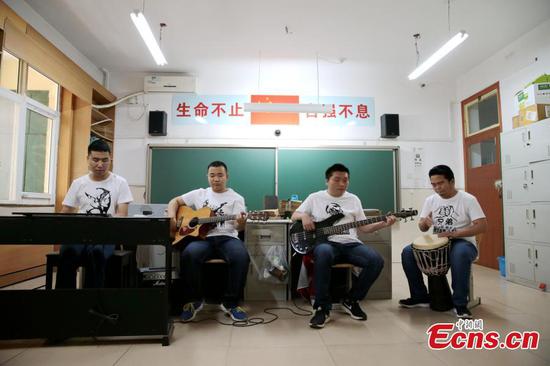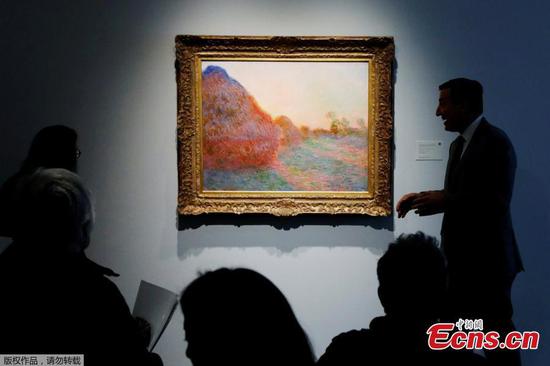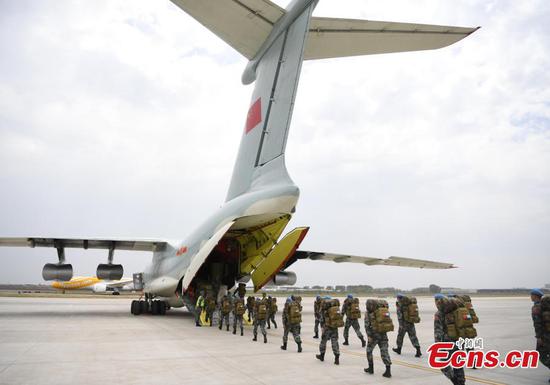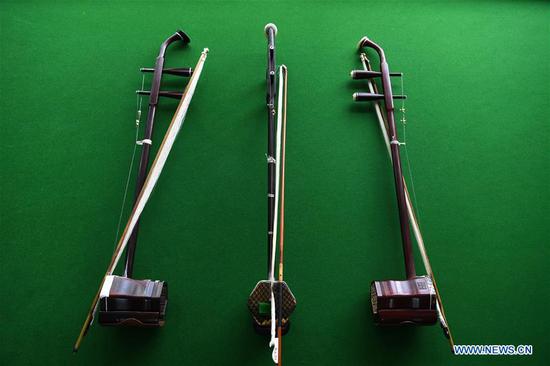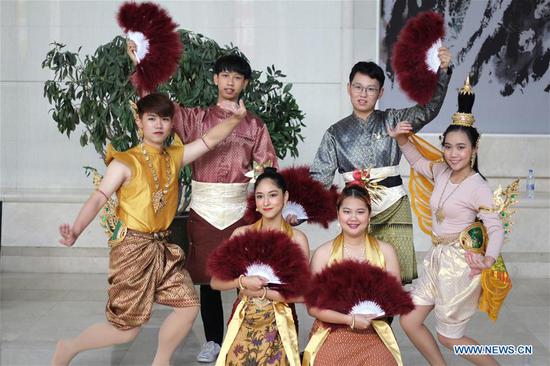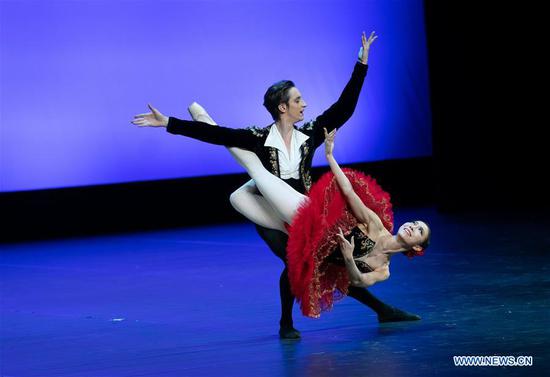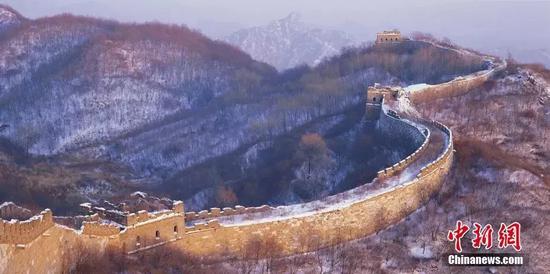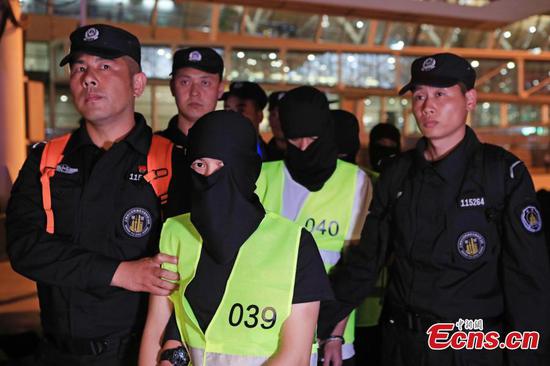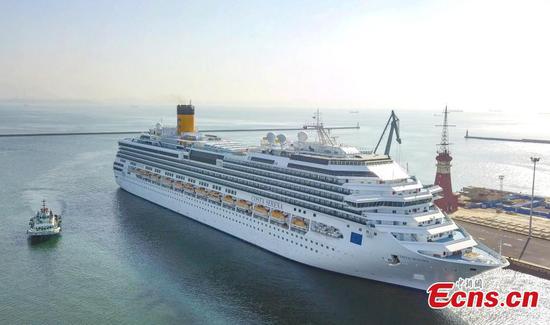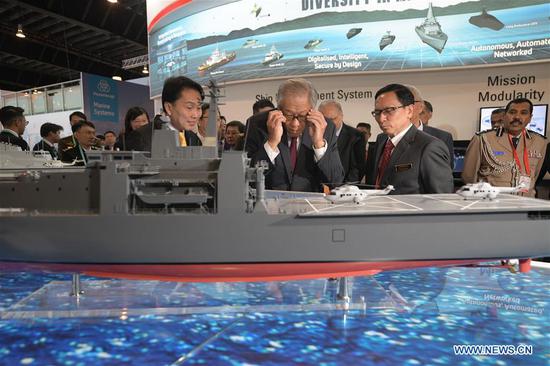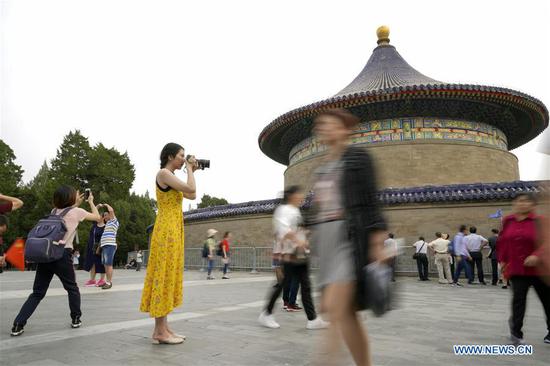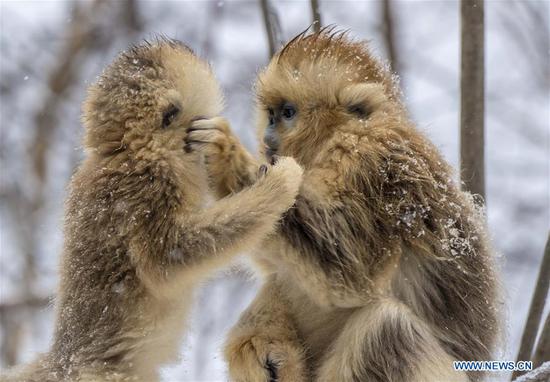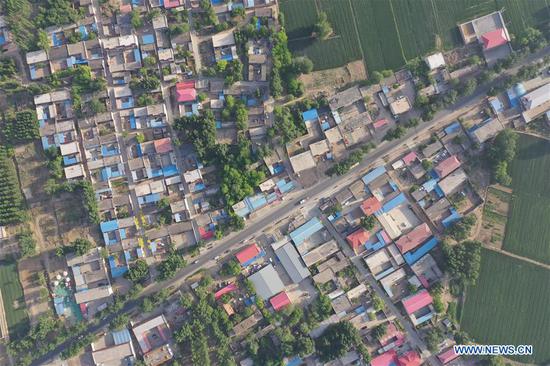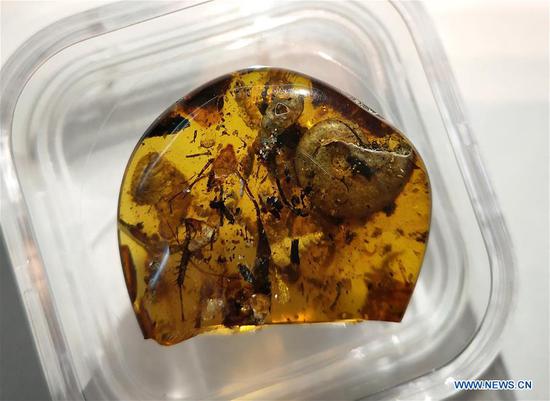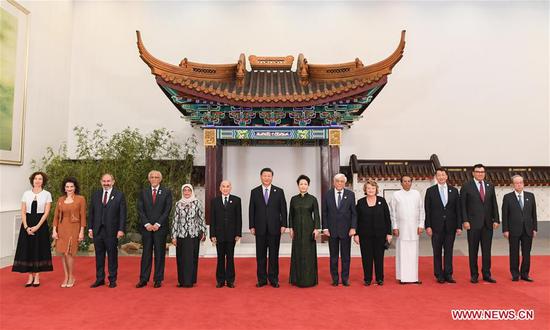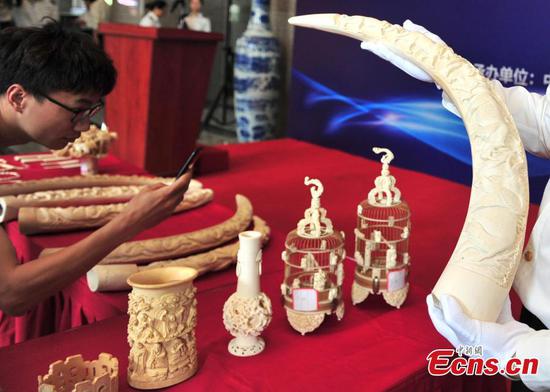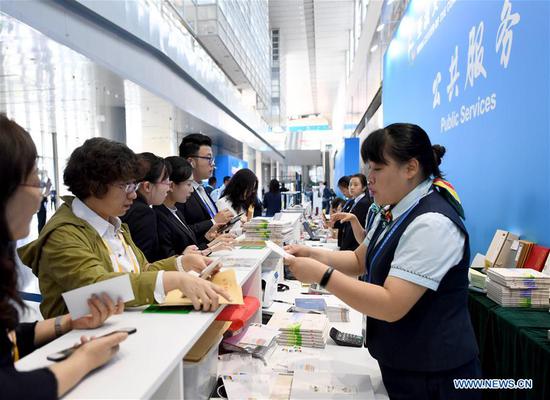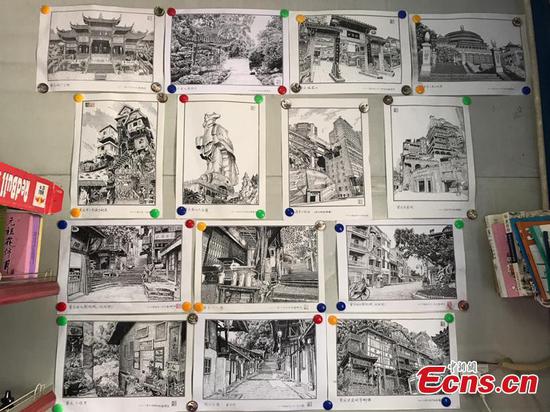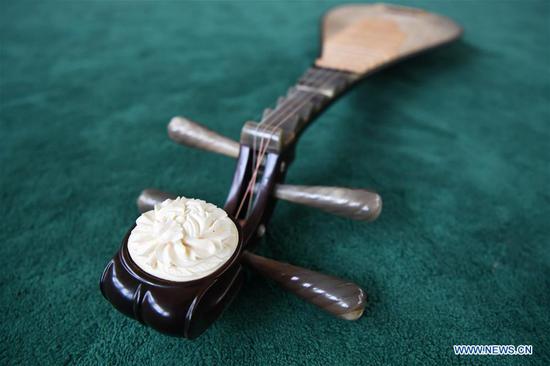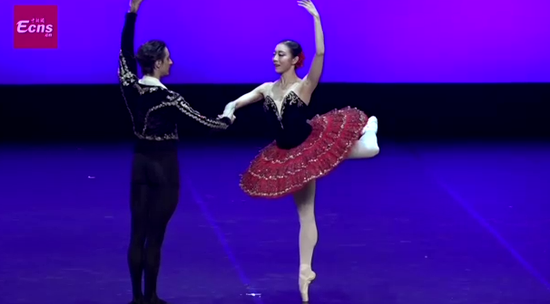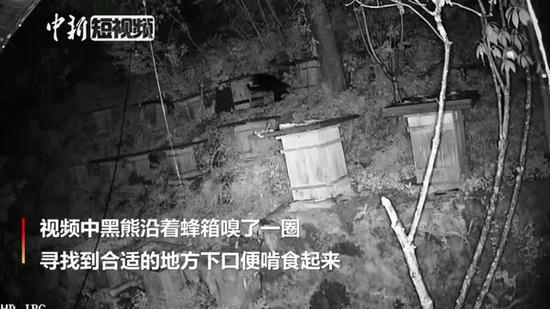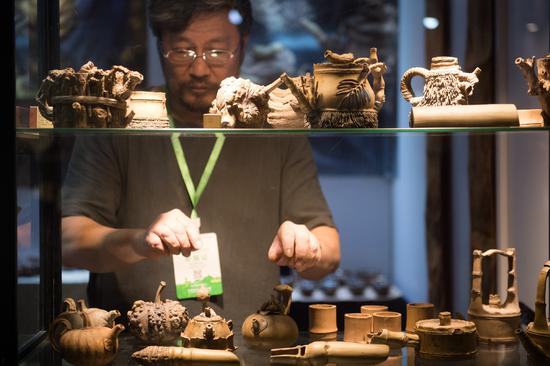
A ceramist from Taiwan shows his handiwork at the China International Tea Expo held in Hangzhou, East China's Zhejiang province, May 15, 2019. (Photo/Xinhua)
Taiwan's future lies in national reunification and the well-being of its people in national rejuvenation, a Chinese mainland spokesman said on Wednesday.
Ma Xiaoguang, a spokesman for the State Council Taiwan Affairs Office, made the remark in response to Foxconn founder and chairman Terry Gou's comments on the 1992 Consensus, which embodies the one-China principle.
Gou, who announced last month that he will enter the Kuomintang primaries and join Taiwan's 2020 leadership election, said the principle should be based on "respective interpretations".
Noting that the mainland and Taiwan both belong to one China, Ma said the principle has clearly defined the nature of cross-Straits relations, which are not state-to-state relations.
It is in the common interests of people from both sides to uphold the principle, to oppose agitation for Taiwan independence, to work for the peaceful development of cross-Straits relations and advance the peaceful reunification of China, he said.
The two sides should work together to resolve differences based on the one-China principle, with responsibility for the Chinese nation and future generations, he added.
Ma also criticized the words and deeds of Democratic Progressive Party officials and secessionists, and added that the mainland will never tolerate or be vague about the issue.
Taiwan leader Tsai Ing-wen has recently made many visits to military camps on the island and has appealed to voters to support Taiwan independence.
Ma said in response: "China's sovereignty and territory brook no division. We firmly oppose any attempt to damage the one-China principle and undermine cross-Straits relations."
"We once again warned the DPP authorities that it is not reliable to bet on foreign forces for Taiwan independence," he added, referring to arms sales by the United States to Taiwan.
The island's authorities have also tried to prevent exchanges between different sides. They amended rules to prevent some officials from the KMT visiting the mainland for talks with the Communist Party of China.
Since 2002, Taiwan's education authority has prevented university students from joining the annual intern program organized by the China Association for Science and Technology.
Ma said exchange programs play an important role in improving cross-Straits relations and enhancing the well-being of compatriots on both sides.
"However, the DPP authorities have used every possible means to obstruct normal exchanges and describe the measures taken by the mainland to do practical things for Taiwan compatriots as a threat to Taiwan," he said.
"Taiwan compatriots will recognize that the DPP is seeking its own selfish interest and the benefits of election at the cost of damaging the essence of cross-Straits relations."









